Top of Page
- Links to move inside this page.
- HOME
- Investor Relations
- IR Library
- QAs from earnings release meetings and others
- FY2017 Results Briefing
QAs from earnings release meetings and others
May 15, 2018: FY2017 Results Briefing
(*) This is a summary of questions and answers took place at the Briefing.
- Question: FY2017 recurring revenue amounted to 82.9% of the total revenue. How has this ratio been trending in the past?
- Answer:As a service provider, our recurring revenue has been amounted to 70% to 80% of the total revenue. Systems construction revenue, which is one-time revenue, tends to decrease in economic recession such as the Lehman-shock, making our recurring revenue ratio to become higher temporarily. Our business model is to basically provide recurring revenue and add systems construction to offer comprehensive solution.
- Question: What is the rationale behind selling hi-ho, IIJ's former consolidated subsidiary?
- Answer:To focus our resources on mobile services, we sold all shares of hi-ho, whose main business was fixed line Internet connectivity for consumers, to a third party at the end of 2017. This is mainly why 4Q17 (three month) IIJ's consolidated Internet connectivity services for consumer decreased from 3Q17 (three month). hi-ho's 3Q17 (three month) revenue for consumer was JPY420 million. As for our FY2018 financial target, we have taken hi-ho's revenue decrease into consideration.
- Question: Why did FY2017 systems construction revenue decrease from FY2016?
- Answer:It was mainly because system engineers were concentrated on a large-scale service integrated project in 1H17, which led to not so strong order accumulation in 2H17, and an absence of Laos data center export project like order, which we had in FY16 and its revenue was JPY1.2 billion.
- Question: Tell us about cloud revenue growth in FY2017
- Answer: Cloud revenue continued to grow and in FY2017 it grew by 14.4% year over year to JPY17.91 billion. Since we recognize cloud migration of Japanese enterprises' internal core business systems are just beginning, we expect it to further penetrate.
- Question: Tell us about your multi-cloud strategy
- Answer: Our cloud strategy is to differentiate with multi-cloud strategy which seems best-suited for Japanese enterprise systems when migrating to cloud systems.
- Question: What is IIJ's take on optimization of mobile communication traffic?
- Answer: The definition of optimization of mobile communication traffic is vague and implies various concepts. We do not have a plan to apply so-called optimization of mobile communication traffic. We are continuously expanding MVNO infrastructure.
- Question: Tell us about full-MVNO business development
- Answer: We launched first line-up of services in March 2018. We are executing several enterprise projects using SIM life cycle management function which allows user to select SIM status to be active, deactivated, or suspended through a control panel. This is a useful function for IoT usage. Also, we started to offer prepaid SIM cards for foreigners visiting Japan from April and they should accumulate as revenue.
- Question: What is the status surrounding DeCurret Inc., IIJ's equity method investee engaging in cryptocurrency business, and its application to become a registered operator at Japan's Financial Service Agency ("FSA")?
- Answer: DeCurret is working rigorously on developing systems and operation process as well as preparing to be registered by the FSA.
- Question: How much equity in net loss due to DeCurret is included in FY2018 plan?
- Answer: We estimate it to be approximately JPY0.6 billion. (*1)
- Question: Explain in detail how recognition of unrealized gains (losses) on holding equity securities will change due to the U.S. GAAP revision from FY2018.
- Answer: Unrealized gains or losses on holding available-for-sale equity securities are evaluated based on the closing price of March 30, 2018, FY2017-end, and are reclassed from accumulated other comprehensive income to retained earnings at the beginning of our FY2018. After that, fluctuations of unrealized gains or losses due to fluctuations of stock prices will be recognized in other income (expenses) at every quarter.
- Question: Why FY2018 financial targets for income before income tax expense, net income attributable to IIJ and EPS are not disclosed?
- Answer: Because forecasting fluctuation of unrealized gains or losses on holding available-for-sale equity are difficult.
- Question: Is JPY1,068 million of net gain on sales of other investments, including available-for-sale securities, a one off?
- Answer: Net gain (loss) on sales of other investments are recognized each year. JPY1,068 million recognized in FY2017 was larger than usual, in that sense, taking it as a one off is reasonable.
- Question: How much unrealized gains on holding equity securities as of March 31, 2018 were on the balance sheets?
- Answer: Other investments of JPY11,374 million on balance sheets consisted of JPY9,288 million of available-for-sale securities, JPY1,014 million of nonmarketable equity securities and JPY1,072 million in investments in funds, including some through a trust.(*2) Unrealized gains on holding equity securities as of March 31, 2018 are included in accumulated other comprehensive income.
- (*1)Please refer to page 21 of our presentation material for Consolidated Financial Results for FY2018
 [845KB]
[845KB] - (*2)Please refer to page 6 of our earnings release titled "IIJ Announces Full Year and Fourth Quarter Financial Results for the Fiscal Year Ended March 31, 2018"
 [907KB]
[907KB]
End of the page.


